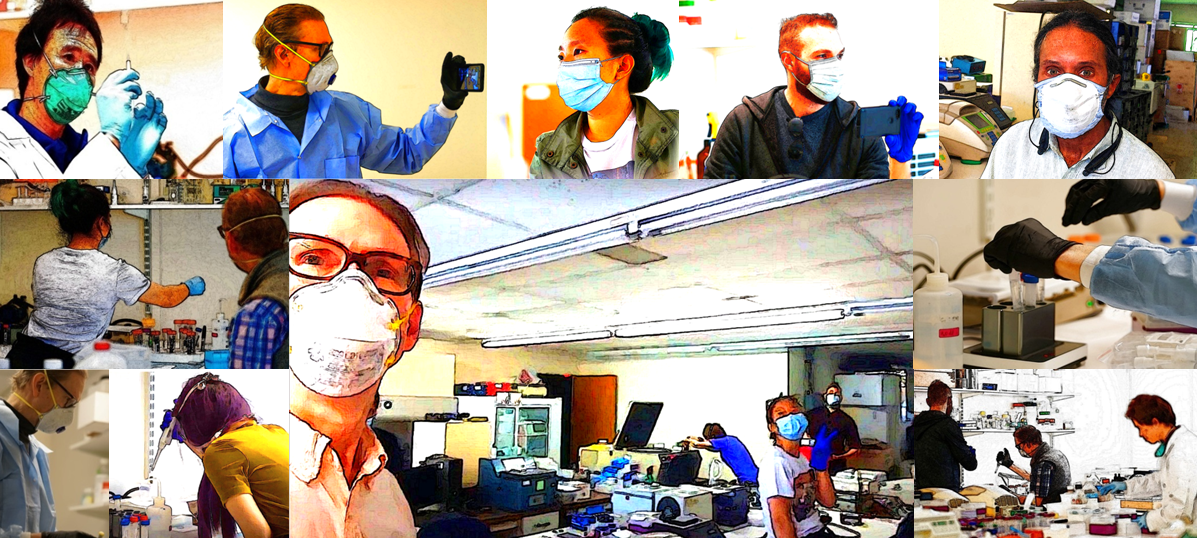We are a group of citizen scientists motivated to action by the suffering and death caused by the SARS-CoV-2 pandemic. We have a range of backgrounds and professions, but many of us are trained scientists and engineers. RaDVaC was launched by Preston Estep, Don Wang, Alex Hoekstra, and Ranjan Ahuja, who were soon joined by Harvard Medical School Professor George Church, Brian Delaney, and a growing contingent of friends and colleagues.
RaDVaC is a 501(c)(3) non-profit, not a commercial organization. We have filed no patent applications or protections of intellectual property on the vaccine work described on this site, and are sharing our collective works and inventions under open licenses (CC BY 4.0 and OCL-P v1.1), and are partners of the Open COVID Pledge.
At the outset of the SARS-CoV-2 pandemic in early 2020, as the death toll began to rise, experts from across the sciences agreed that vaccines would likely bring the virus under control—but along with this hopeful idea came a sobering prediction: they would likely take at least a year to receive emergency use authorization (EUA), and even longer to be produced and deployed at scale. This yearlong delay would mark the most rapid deployment of vaccines in history; yet that delay killed millions and destroyed tens-of-millions of lives, families, and economies around the world while allowing the virus to spread widely and mutate into numerous variants more infectious than the original.
Few know that the vaccines which eventually received EUA were created in just a few days of the first month of the pandemic. Regulators insisted that the delay was necessary for thorough testing of vaccines, with the goal of retaining and regaining public trust. But this ignores a simple risk calculation: the longstanding safety record of modern vaccines relative to the risks posed by the SARS-CoV-2 virus. It would be nearly impossible for a company to create a vaccine that is as dangerous or deadly as the virus. We must be more rational and move far more quickly.
One way to move more quickly is to deploy countermeasures that act more quickly than vaccines. Even the best vaccines take 7 to 10 days to mount a preliminary adaptive immune response. That is why RaDVaC is also developing rapid deployment antivirals, which can be effective immediately. RaDVaC is creating an AI engine for predicting antivirals, which consist of combinations of repurposed, regulatory approved drugs and generally recognized as safe (GRAS) compounds.
